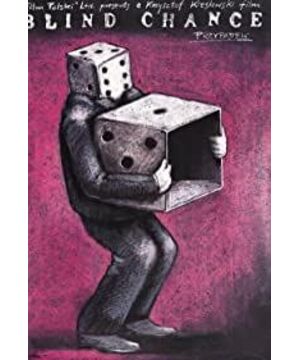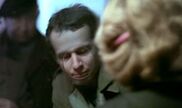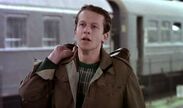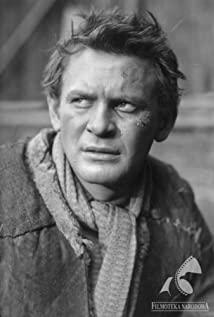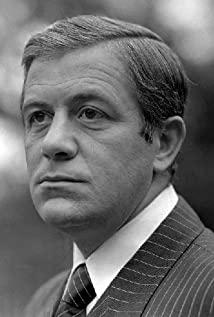Kieslowski's "Song of Opportunity" is 11 years earlier than "Lola Run" with the same theme. It is difficult to say that "Lola Run", which is also a three-stage fast run that changed the fate, has not been successful. This film draws on tribute. The film is not sloppy in the slightest. On the contrary, the plot almost captures the most important key turning points in a person's life in a jumping way and presents them to the audience, and these turning points were just ordinary days in our eyes at the time. The director presents three kinds of life of a person in a cold way.
The male protagonist repeatedly mentions his birth, in Poznan in June 1956, indicating that he is the product of the workers' strike against the party in Poznan, Poland. The terrible and numerous deceased in the hospital at the beginning of the film restored the horror at that time with a bloody scene. In this bloodshed incident, the male protagonist was born. His birth seemed to carry the mission of change and the hope of a new era. The confusion caused has to be borne by generations. And Poland, which is famous for its pro-France, simply made flying to France an unattainable dream this time. The actor tried to escape from France in three twists of fate, but all ended in failure. "Song of Opportunity" seems to be an unrequited love song that hates the Soviet Union's closeness to France.
In the three lives of the male protagonist, he has successively become a party member, an underground worker, and a doctor. He has entered the national committee, spoke out against politics, and became a doctor without party affiliation. When he believed that the party was serving the country, he was forced to become a whistleblower; when he believed in God and tried to obtain salvation from religion, he was wrongly accused of being a traitor and betrayed his partner who was also a political prisoner; when he chose to be a political prisoner After a doctor with no party affiliation, he became the target of various factions, and finally had the opportunity to escape to Paris and successfully boarded a plane, but the plane crash and explosion presented to the audience.
The two shots at the beginning of the film are perfectly connected. One shot is the desperate cry of the hero who is about to crash the plane, and the other is the horror that the hospital was full of dead bodies when the hero was born. The boundaries between life and death are blurred, and change and struggle must be based on pain and despair. The male protagonist chases the train three times and leads to a completely different life. The director's camera reveals the sadness that there is no one and only fate in the world, and there are no tears because of the extreme despair. Satisfaction and satisfaction both have the element of dedication to fulfilling others, leaving only the mysterious last words of the male protagonist's father before his death: "Never..."
The time bottle buried deep in the earth has witnessed the broken lives of four people, three people who did not realize their dreams and one person who hated these three people. Time also begins with the Poznan incident. Metaphorical political leanings and religious irony allow the impermanence of fate to be brought to an extreme. In different lives, the male protagonist has met his lover, his first love, his younger sister, and his classmates, and almost every love is separated by political opposition and suspicion. What I have to pay attention to is that even if it is as strong as love, it is only a passer-by in life at that time. Once there is an unexpected turning point in your life at any moment, the fate you thought you were sticking to is destined to go to a distant alien planet immediately.
In this incoherent life, there are only opportunities for turning points. Every step has to be careful, but the arrangement of fate cannot be predicted at every step. The male protagonist's genealogy confirms the history of the Republic of Poland, and his own ill-fated fate also highlights the director's doubts about the motherland. Comparing the thrilling and passionate rescue of love in "Lola Run", this "Song of Opportunity" is desperate, angry, and helpless. The former is a fanatical adventure in the virgin forest, and the latter is a lonely introspection of deep-sea boating. It is easy to fall in love. The former, distressed to find that they are the latter.
View more about Blind Chance reviews


